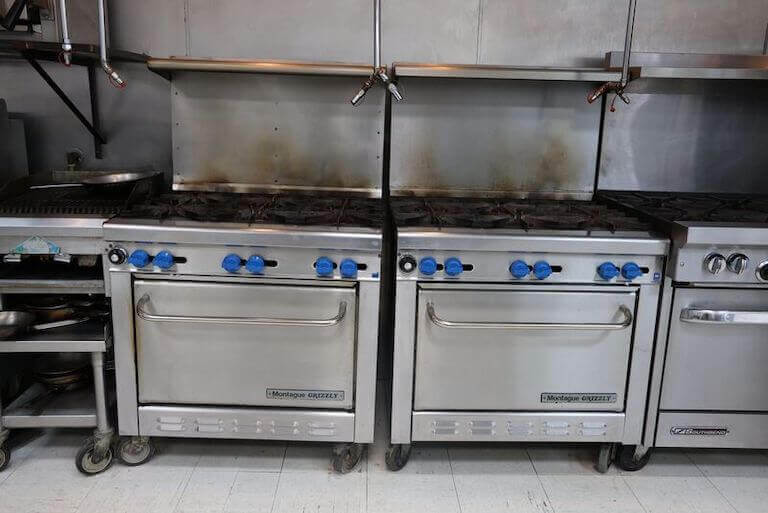Data from the National Restaurant Association says that 9 out of 10 restaurant managers began their careers in entry-level industry positions. If so many managers worked their way up, does that mean that there’s no need to get a hospitality degree?
On the contrary…this may be a strong reason to complete a hospitality program! With so many restaurant managers coming to the position without education or formal training, what better way to stand out from the crowd than by earning an associate degree?
A degree program may give graduates the skills they could need to help their restaurants and other hospitality businesses be more successful. From a clearer financial strategy to stronger leadership to better communication with guests and employees, educated managers can bring a host of skills to the table.
Find out what you may learn in a hospitality degree program, and how these subjects may lead to stronger foodservice operations.
Managing Day-to-Day Hospitality Operations
There is so much more to hospitality operations than simply making and serving food! The level of organization, planning, and logistics that go into this business can be overwhelming—if the manager isn’t organized and educated.
In the online hospitality degree program at Auguste Escoffier School of Culinary Arts, students can explore the inner workings of these complex workflows, from safe alcohol service to the technology that can make daily tasks more efficient.
Beverage Operations
Most hospitality operations include some kind of alcoholic beverage service. This can obviously bring increased profitability, but it might also come with some legal and liability pitfalls if management isn’t careful.
At Escoffier, the hospitality degree program may include coursework that can help students protect their establishments and employees, as well as create a profitable drink menu and manage bar-related inventory.
Catering & Events Management
Both private and public events can boost a hospitality organization’s revenue. Events allow restaurants, hotels, and other venues to make income from multiple avenues–including rental fees for the use of the space, catering costs, staffing, and furniture/equipment rentals.
But these events often have many moving parts and require careful management. Escoffier’s hospitality degree program may include project planning, coordination strategies, and execution frameworks that can help managers keep events on track and clients happy.

Facilities and Technology Operations Management
Any business that prepares food and/or serves customers on-premise has to ensure that their facilities are clean, safe, and up to code. While the regulations governing sanitation and compliance vary based on city, county, and state regulations, a basic understanding of common rules can give managers a place to start. Managers should also be familiar with basic building and equipment maintenance, as repairs often fall under their purview!
There are always emerging technologies designed to make hospitality operations more efficient. We’ve come a long way from passing handwritten orders to the cooks and creating schedules in Excel! New apps and integrations may be able to create more streamlined processes, saving time and money.
Escoffier’s hospitality and restaurant operations management degree includes coursework in both facilities operations and hospitality technology that can help students keep their businesses compliant and efficient!

Equipment maintenance and repairs could be your responsibility!
Hospitality Business Finances and Profitability
The profit margins for restaurants can be slim. Without a close eye on the numbers, it’s all too easy for costs to spiral out of control and eat away at those profits.
To keep a restaurant or hospitality business solvent, the management team has to keep a firm grip on revenue and both fixed and variable expenses. The financial piece should be a substantial part of a hospitality management education. And at Escoffier, it is!
Menu Design and Pricing
The cost of each item on your menu must be carefully calculated to ensure that each sale covers its food costs, labor costs, a portion of operating costs, and leaves a bit for profit—without the customer feeling like they’re being overcharged.
A hospitality manager should know how to determine the appropriate price for each menu item. They may also need some design techniques to make the menu visually appealing. All of these topics can be covered in Escoffier’s Menu Design and Management course as part of our hospitality degree program!

The cost of each of these ingredients must be included in the menu price!
Cost Control and Purchasing
In a hospitality degree program, coursework on cost control and the purchasing process can help future managers track inventory costs and make real-time changes based on shifting supplies and costs.
Learning how to create sales forecasts can also help managers to anticipate slower months and keep the business solvent during those lean times.
“Our students are taught the financial aspects of running a successful hospitality operation. Being able to apply this knowledge in the workplace can make them valued employees.”*
Maria Davenport, Escoffier Hospitality & Restaurant Operations Management Instructor
Foodservice Math and Accounting
Restaurant and hotel managers are not expected to be accountants. But they should have a firm grasp of some accounting principles, like food and labor costs, controllable and non-controllable expenses, taxes, and analyzing income statements and profit and loss reports.
A business with a financially educated managerial staff is much better equipped to spot problems before they become catastrophes. They can see where the business may be leaking cash either due to oversights or to theft, and take the necessary corrective steps.
This coursework at Escoffier is practical for the future hospitality manager, but it also satisfies the associate degree student’s math requirement!

Employee Training & Customer Service
If foodservice and hospitality businesses were simply a matter of serving delicious food at a profit, they could be run entirely by chefs and accountants.
But there is a strong interpersonal aspect of these businesses as well, both between employees and from employee to customer. Hospitality businesses are often tight-knit, which helps the group to pull together as a team. But those relationships must be monitored to prevent them from becoming “clique-ish” or creating an “us against them” mentality (with “them” being the customers).
Diligent staff training is key to ensuring the team knows what is expected of them and is providing the best possible customer experience.
Professionalism & Service Standards
What does it actually mean to be professional? It can evoke thoughts of formality, suits, and stiff handshakes. But in a hotel or restaurant, that doesn’t always ring true.
Since cooks are dealing with food and servers often lean into a table to set down plates and glassware, good hygiene is a key component of professionalism. Some establishments also create their own strict service standards, including timing criteria for when dishes are served, points of contact like check-ins after serving entrees, and even the way a napkin is folded when a guest gets up from the table to use the restroom.
These are the details the average diner may never even consider. But they can turn a nice dining experience into a stellar one.
“[Escoffier] students can learn guest service techniques on how to deal with complaints throughout their classes.”*
Ashley Godfrey, Escoffier Hospitality Management Instructor and Former Walt Disney Resort Manager
Strong Communication Skills
Communication is key to any business. But in hospitality, where the employees may never sit at a computer and the crew can work opposite shifts, it’s even more crucial.
A well-rounded hospitality degree program should explore the importance of communication. One key focus is on cultural differences, as guests and employees often come from all different cultures and socioeconomic backgrounds.
Escoffier’s coursework in active listening, verbal and nonverbal communication, and conflict resolution can prepare future hospitality professionals for the conversations they’ll need to have in their work.
Human Resources Fundamentals and Leadership
Larger hotels and restaurant chains may have an official human resources department. But many independent restaurants or boutique hotels do not. So it’s often up to management to serve that function.
They should, of course, be aware of their state regulations for hiring, firing, and handling internal complaints. But they should also know how to onboard new staff smoothly, provide employee evaluations, and help encourage staff to reach their full potential.
“Our program addresses how to provide your customers with an outstanding hospitality experience, how to manage employees in various roles throughout the operation, and how to manage the profitability of the establishment.”*
Maria Davenport, Escoffier Hospitality & Restaurant Operations Management Instructor
Put It All Together in an Industry Externship
At the end of the Online Degree in Hospitality & Restaurant Operations Management program at Escoffier and prior to graduation, students complete a 160-hour, six-week industry externship where they can work alongside hospitality professionals. Each student secures their own externship, but the Career Services department at Escoffier may be able to assist students with outreach to their desired placements in some instances.
The hands-on externship experience can give hospitality students the opportunity to “try out” a segment of the industry that interests them, whether that’s in a hotel, restaurant, event venue, catering company, or any other niche. Externships may be paid or unpaid, depending on what the employer chooses. As the student extern, you may choose to only look at paid placements if that’s your preference!
All This and More in Just 60 Weeks!
For an online hospitality degree program to cover so many different topics, it must take years to complete, right? Not at all. Escoffier’s Associate of Occupational Studies in Hospitality and Restaurant Operations Management degree program lasts only 60 weeks.
Whether you have years of front-of-house restaurant experience, just stepped into a managerial role, or are brand new to the industry, an education in hospitality management may help you to achieve your professional goals more quickly than you could otherwise.
To discover more about what you could learn, and how this education could help you become a better leader, contact us today.
To learn more about hospitality management, try these articles next:
- How to Train Your Restaurant Employees
- Careers a Hospitality & Restaurant Operations Management Degree Can Prepare You For
- How Many Employees Does it Take to Run a Restaurant?
*Information may not reflect every student’s experience. Results and outcomes may be based on several factors, such as geographical region or previous experience.

 “Our students are taught the financial aspects of running a successful hospitality operation. Being able to apply this knowledge in the workplace can make them valued employees.”*
“Our students are taught the financial aspects of running a successful hospitality operation. Being able to apply this knowledge in the workplace can make them valued employees.”* “[Escoffier] students can learn guest service techniques on how to deal with complaints throughout their classes.”*
“[Escoffier] students can learn guest service techniques on how to deal with complaints throughout their classes.”*

